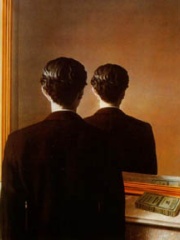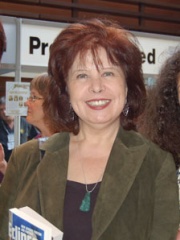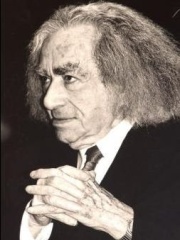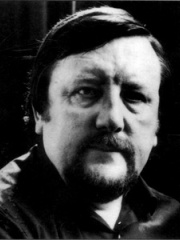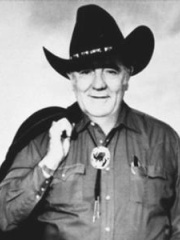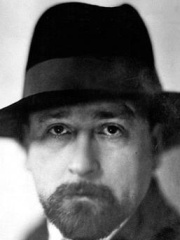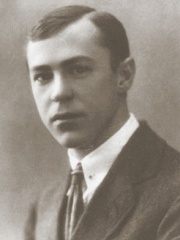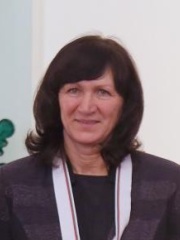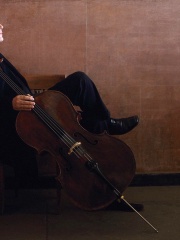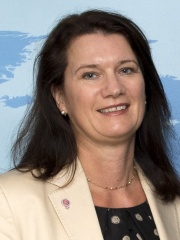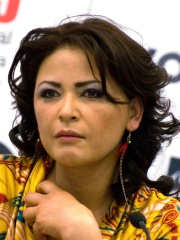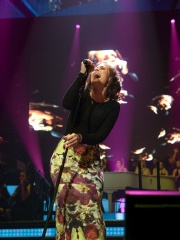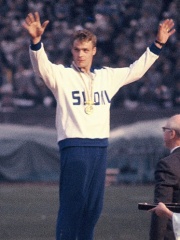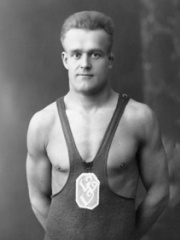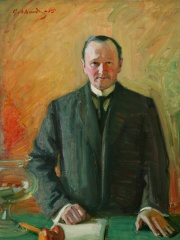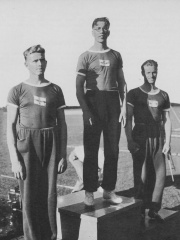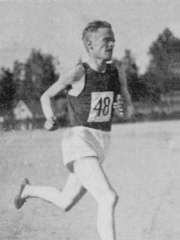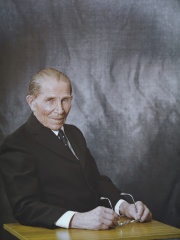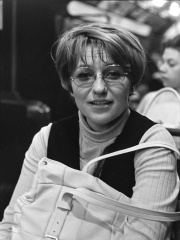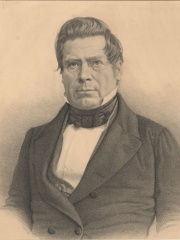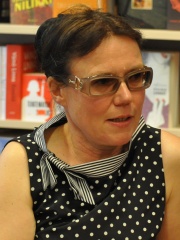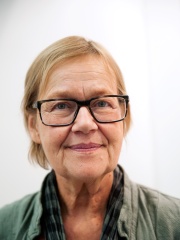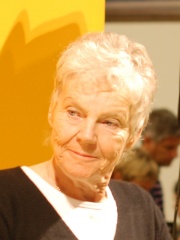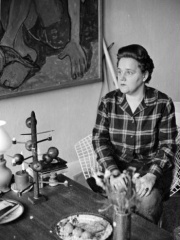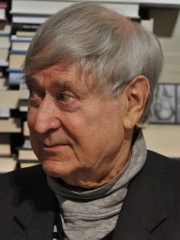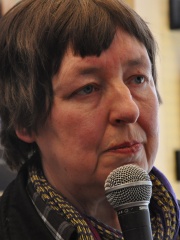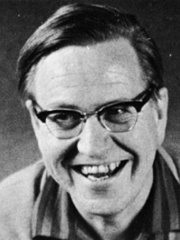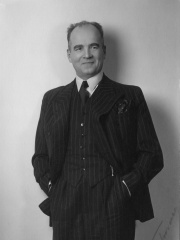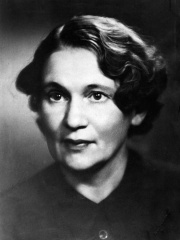WRITER
Kjell Westö
1961 - Today

 Kjell Westö
Kjell Westö
Kjell Westö (born 6 August 1961) is a Finnish author and journalist. Westö writes in Swedish. Best known for his epic novels set in Helsinki, he has also written short stories, poetry, essays and newspaper columns. Read more on Wikipedia
His biography is available in 26 different languages on Wikipedia. Kjell Westö is the 5,169th most popular writer (up from 5,496th in 2024), the 332nd most popular biography from Finland (up from 335th in 2019) and the 29th most popular Finnish Writer.
Memorability Metrics
Page views of Kjell Westö by language
Among WRITERS
Among writers, Kjell Westö ranks 5,169 out of 7,302. Before him are Edward James, Paula Hawkins, Nancy Kress, Joël Dicker, György Faludy, and Rick Warren. After him are Bob Shaw, Louis L'Amour, Mats Wahl, Wilhelm Geiger, Albert Londres, and Valerian Pidmohylny.
Most Popular Writers in Wikipedia
Go to all RankingsEdward James
1907 - 1984
HPI: 55.23
Rank: 5,163
Paula Hawkins
1972 - Present
HPI: 55.23
Rank: 5,164
Nancy Kress
1948 - Present
HPI: 55.22
Rank: 5,165
Joël Dicker
1985 - Present
HPI: 55.22
Rank: 5,166
György Faludy
1910 - 2006
HPI: 55.22
Rank: 5,167
Rick Warren
1954 - Present
HPI: 55.22
Rank: 5,168
Kjell Westö
1961 - Present
HPI: 55.21
Rank: 5,169
Bob Shaw
1931 - 1996
HPI: 55.21
Rank: 5,170
Louis L'Amour
1908 - 1988
HPI: 55.21
Rank: 5,171
Mats Wahl
1945 - 2025
HPI: 55.21
Rank: 5,172
Wilhelm Geiger
1856 - 1943
HPI: 55.21
Rank: 5,173
Albert Londres
1884 - 1932
HPI: 55.20
Rank: 5,174
Valerian Pidmohylny
1901 - 1937
HPI: 55.20
Rank: 5,175
Contemporaries
Among people born in 1961, Kjell Westö ranks 287. Before him are Yordanka Donkova, Jesper Olsen, Catherine Oxenberg, Fausto Gresini, Truls Mørk, and Ann Linde. After him are Kiyotaka Matsui, Hany Abu-Assad, Elpidia Carrillo, Alison Moyet, Anthony Wong, and Corinne Hermès.
Others Born in 1961
Go to all RankingsYordanka Donkova
ATHLETE
1961 - Present
HPI: 55.51
Rank: 281
Jesper Olsen
SOCCER PLAYER
1961 - Present
HPI: 55.47
Rank: 282
Catherine Oxenberg
ACTOR
1961 - Present
HPI: 55.31
Rank: 283
Fausto Gresini
RACING DRIVER
1961 - 2021
HPI: 55.27
Rank: 284
Truls Mørk
MUSICIAN
1961 - Present
HPI: 55.26
Rank: 285
Ann Linde
POLITICIAN
1961 - Present
HPI: 55.24
Rank: 286
Kjell Westö
WRITER
1961 - Present
HPI: 55.21
Rank: 287
Kiyotaka Matsui
SOCCER PLAYER
1961 - Present
HPI: 55.15
Rank: 288
Hany Abu-Assad
FILM DIRECTOR
1961 - Present
HPI: 55.14
Rank: 289
Elpidia Carrillo
ACTOR
1961 - Present
HPI: 55.13
Rank: 290
Alison Moyet
SINGER
1961 - Present
HPI: 55.13
Rank: 291
Anthony Wong
ACTOR
1961 - Present
HPI: 55.12
Rank: 292
Corinne Hermès
SINGER
1961 - Present
HPI: 55.10
Rank: 293
In Finland
Among people born in Finland, Kjell Westö ranks 332 out of 751. Before him are Antti Tuuri (1944), Eero Berg (1898), Eevi Huttunen (1922), Erkki Kataja (1924), Pauli Nevala (1940), and Hermanni Pihlajamäki (1903). After him are Jorma Ollila (1950), Oskari Tokoi (1873), Matti Sippala (1908), Eino Purje (1900), Emppu Vuorinen (1978), and Arvo Ylppö (1887).
Others born in Finland
Go to all RankingsAntti Tuuri
WRITER
1944 - Present
HPI: 55.37
Rank: 326
Eero Berg
ATHLETE
1898 - 1969
HPI: 55.35
Rank: 327
Eevi Huttunen
POLITICIAN
1922 - 2015
HPI: 55.35
Rank: 328
Erkki Kataja
ATHLETE
1924 - 1969
HPI: 55.31
Rank: 329
Pauli Nevala
ATHLETE
1940 - 2025
HPI: 55.30
Rank: 330
Hermanni Pihlajamäki
WRESTLER
1903 - 1982
HPI: 55.21
Rank: 331
Kjell Westö
WRITER
1961 - Present
HPI: 55.21
Rank: 332
Jorma Ollila
BUSINESSPERSON
1950 - Present
HPI: 55.05
Rank: 333
Oskari Tokoi
POLITICIAN
1873 - 1963
HPI: 54.98
Rank: 334
Matti Sippala
ATHLETE
1908 - 1997
HPI: 54.97
Rank: 335
Eino Purje
ATHLETE
1900 - 1984
HPI: 54.93
Rank: 336
Emppu Vuorinen
MUSICIAN
1978 - Present
HPI: 54.92
Rank: 337
Arvo Ylppö
PHYSICIAN
1887 - 1992
HPI: 54.91
Rank: 338
Among WRITERS In Finland
Among writers born in Finland, Kjell Westö ranks 29. Before him are Uma Aaltonen (1940), Adolf Ivar Arwidsson (1791), Rosa Liksom (1958), Tua Forsström (1947), Märta Tikkanen (1935), and Antti Tuuri (1944). After him are Eeva-Liisa Manner (1921), Hannu Salama (1936), Leena Krohn (1947), Simo Puupponen (1915), Arvi Pohjanpää (1887), and Katri Vala (1901).
Uma Aaltonen
1940 - 2009
HPI: 56.99
Rank: 23
Adolf Ivar Arwidsson
1791 - 1858
HPI: 56.83
Rank: 24
Rosa Liksom
1958 - Present
HPI: 56.07
Rank: 25
Tua Forsström
1947 - Present
HPI: 55.98
Rank: 26
Märta Tikkanen
1935 - Present
HPI: 55.74
Rank: 27
Antti Tuuri
1944 - Present
HPI: 55.37
Rank: 28
Kjell Westö
1961 - Present
HPI: 55.21
Rank: 29
Eeva-Liisa Manner
1921 - 1995
HPI: 54.35
Rank: 30
Hannu Salama
1936 - Present
HPI: 53.71
Rank: 31
Leena Krohn
1947 - Present
HPI: 53.55
Rank: 32
Simo Puupponen
1915 - 1967
HPI: 53.23
Rank: 33
Arvi Pohjanpää
1887 - 1959
HPI: 52.71
Rank: 34
Katri Vala
1901 - 1944
HPI: 52.48
Rank: 35
